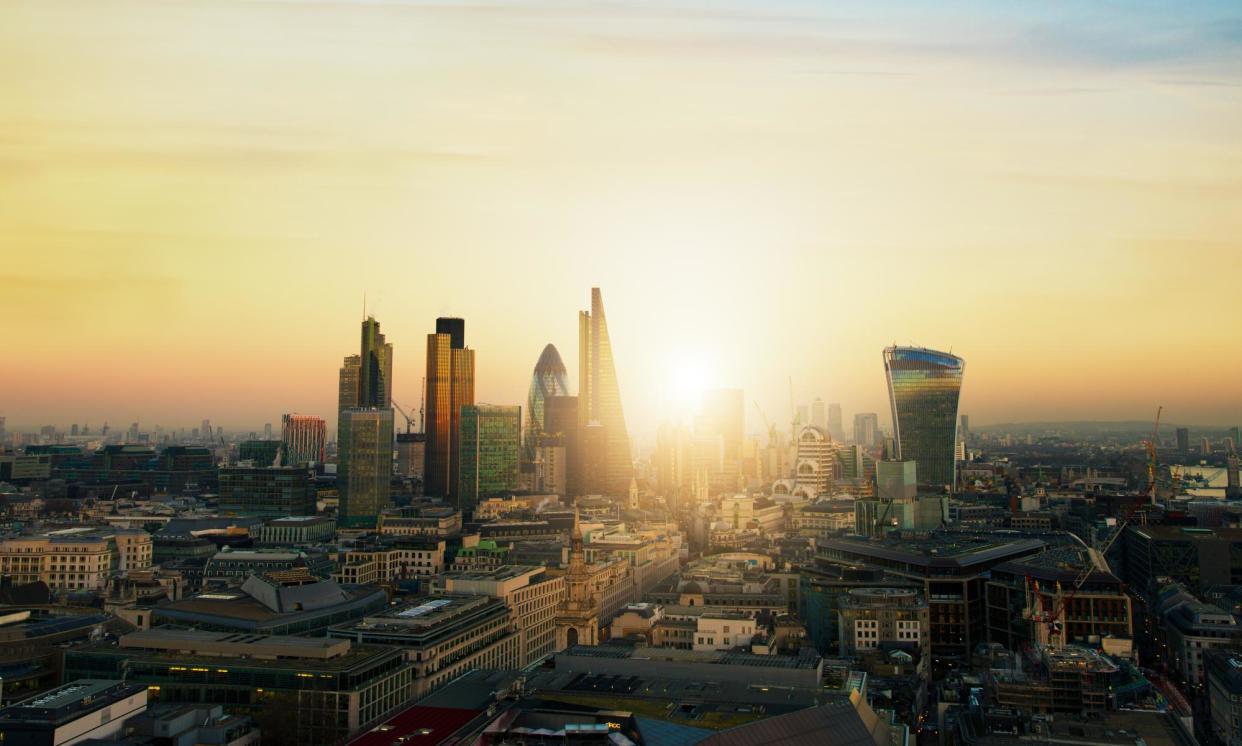Caledonian Road by Andrew O’Hagan review – state-of-the-nation burlesque

The city itself is the star of all great London novels, and plays whatever role is required by the tale or the times. It was a semi-sentient organism in Dickens’s Bleak House, wrapped in fog and thick with mud. It was rancorous and gone to seed in Patrick Hamilton’s Hangover Square; gauche and adventurous in Colin MacInnes’s Absolute Beginners and Zadie Smith’s White Teeth. John Wyndham’s The Day of the Triffids cast it as a city of the blind, prowled by carnivorous walking plants. That probably remains fictional London’s lowest ebb. But at times, for dark stretches, Andrew O’Hagan’s seventh novel runs it close.
This is in no way to suggest that Caledonian Road is a drag. Quite the opposite: it’s an addictively enjoyable yarn; a state-of-the-nation social novel with the swagger and bling of an airport bestseller and an insider’s grasp on the nuances of high culture. But this bustling, boisterous burlesque has the sour undertow of despair. The London that emerges from its 600-odd pages resembles a vast, rotting carcass picked over by carrion. The people live off it, not in it, and seem to be intent on stripping the place to the bone.
The novel understands all too well that this metropolis is a bubble; that its reckoning is in the post
Our tour guide of sorts is 52-year-old Campbell Flynn, a celebrity writer and academic who owns a house in Islington’s Thornhill Square, maintains a second home out in Suffolk and recently completed a money-spinning self-help book called Why Men Weep in Their Cars. Life is good, he’s living the dream, which is another way of saying that he’s careering towards disaster, folded in with an ensemble cast of aristocrats and human traffickers, screen actors and newspaper columnists. When O’Hagan isn’t arranging walk-on cameos for true-life personalities (Baz Luhrmann, Grayson Perry), he whips up such coy caricatures as Yuri Bykov, the preening playboy son of a Russian oligarch. This is rollicking fiction lifted from on-the-ground fact, the novel rekitted as a journalistic first draft of history. Yuri, it should be noted, is emphatically not Evgeny Lebedev. But they may once have shared the same infinity pool.
As for Campbell, he’s only tangentially related to the author himself, even if both are the sons of Glaswegian joiners, raised on council estates and now reinvented as glossy middle-aged men of letters. Campbell, for his part, is smart enough to see 2020s London for what it is: a den of thieves and chancers, hobbled by Brexit and bloated by Russian cash. But he’s compromised and conflicted, the classic working-class bind. He’s seduced by the money, the status and glamour. His lifestyle’s been bankrolled by a rackety tycoon, William Byre. Meanwhile, in the basement, lurks his angry sitting tenant Mrs Voyles. When Campbell hits rock bottom, Mrs Voyles lies in wait with her horror stories of rat infestations, broken gates and bad plumbing. In a curious roundabout fashion, it almost feels like coming home.
Bounding from the penthouse to the pavements, administering to a sprawling cast of characters, Caledonian Road nods most obviously to Dickens (Mrs Voyles is self-consciously positioned as “a Dickensian crone”), although it also stirs memories of Tom Wolfe’s The Bonfire of the Vanities and Paolo Sorrentino’s film The Great Beauty. It’s a bold, bullish tale of hubris and corruption, a book simultaneously dazzled and disgusted by the city it depicts. O’Hagan falters slightly when he’s running alongside London’s youth, with their fist bumps and shout-outs and full-on happening parties. Elsewhere, his prose is nimble, lively and sure-footed. Caledonian Road knows how newspapers and high courts and criminal gangs operate. It knows the price in a club of a magnum of Cristal (£1.5k, if you’re asking) and two bottles of top-notch Belvedere vodka (£600). Crucially, it understands all too well that this metropolis is a bubble: that its economy is unsustainable and that its reckoning is in the post.
“The whole country is in deep,” explains Tara Hastings, the young investigative reporter who’s probing the connections between Campbell, William Byre, Yuri Bykov and the Duke of Kendal. Except that Tara should probably declare an interest as well, given that she was part of Yuri’s social set back at Oxford. “They all know each other,” says Campbell. The Russian crooks and the English lords. The flamboyant art dealers and the hard-right politicians.
Campbell, God help him, has managed to crack the class ceiling. But his place is provisional, dependent on the patronage of his social betters. In his darkest moments, the man views himself as an impostor, an outsider. He’s “a liquid presence”, we’re told, “never quite finished as a person”. O’Hagan shakes him up and deploys him as a kind of diagnostic barium meal, pouring him down through the Islington townhouses and restaurants, past the clubs, pubs and shipping containers, all the way to the basement, as the story plays out as a great dying fall.
• Caledonian Road by Andrew O’Hagan is published by Faber (£20). To support the Guardian and Observer, order your copy at guardianbookshop.com. Delivery charges may apply.


